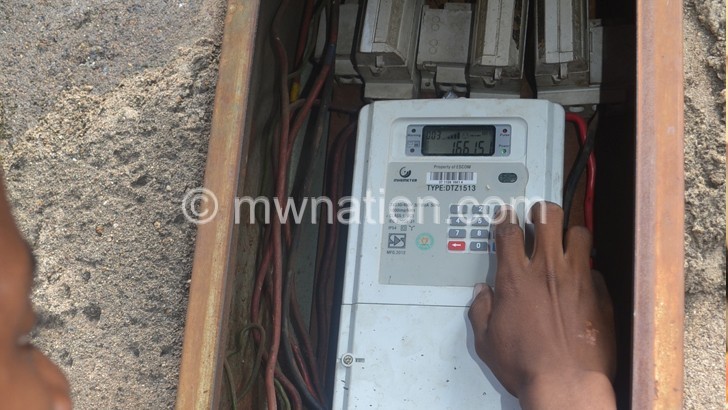Malawi has dropped six places to 19th out of 43 economies with better electricity regulation on the African Development Bank(AfDB) 2021 Electricity Regulatory Index (ERI).
Last year, Malawi was ranked 13th out of 43 economies surveyed.

ERI is a composite index that measures the level of development of electricity sector regulatory frameworks in African countries against international standards and best practice.
In the report, AfDB indicated that Malawi alongside 27 other economies had its average end-user tariffs not in line with the costs of operations of the electricity utility companies.
Reads the report in part:” Well-developed economic regulation supports transparency and credibility of the tariff setting regime.
“It encourages investors to make long-term investments. Well-developed economic regulation also incentivise investors to make more commercially driven investments and encourages competition in the electricity sector.”
It said a good economic regulatory regime will also include the development of tariff guidelines for grid-connected renewable energy systems and off-grid systems.
A cost-reflective tariff is one which reflects the true cost of supplying electricity and removes reliance on government subsidies to cover the variance between the current tariff and the true cost of supplying electricity.
In 2008, Southern Africa Development Community energy ministers agreed to implement cost-reflective tariffs by 2013, but this far only two countries have attained cost-reflective tariffs. The attainment of cost-reflective target was pushed to 2019.
However, under the $350.7 million (about K289 billion) energy compact funded by the United States government also committed to a phased implementation towards a full cost-reflective tariff under the power sector reforms programme.
But Electricity Supply Corporation of Malawi (Escom) earlier admitted that a lack of cost-reflective tariffs is preventing the power utility from connecting new customers to the national grid.
Escom senior manager for commercial and customer services Wiseman Kabwazi said in an earlier interview that to connect a new customer, it costs about K282 000 for domestic consumers, with urban consumers paying an average of K93 000 and those in rural areas paying K5 000.
“At the moment, we have to write Malawi Energy Regulatory Authority [Mera] on the new connections we want to have for a particular year to allow Escom to borrow money from financing institutions to implement the project,” he said.
Meanwhile, Mera is set to consider a 10 percent increase in electricity tariffs with the tariff adjustment proposal expected to be considered after assessing Escom’s performance against the agreed key performance indicators (KPIs) and findings of the annual regulatory audit.
Mera consumer affairs and public relations manager Fitina Khonje said in an interview yesterday there are KPIs on service quality to be achieved through investments and others relating to revenue performance.
She said the financial KPIs include current ratio and acid test, trade payable, interest coverage, collection efficiency, maintenance costs as a percentage of operational costs and net surplus as a percentage of revenue.
Non-financial KPIs cover areas of connection targets, system losses and transmission interruption indices.
Escom public relations manager Innocent Chitosi is on record as having said that a number of factors have seen the utility failing to secure cost-reflective tariff revenue.
Since its launch in 2018, the AfDB Electricity Regulatory Index has highlighted aspects of electricity regulation that need reform, identified appropriate areas for intervention and encouraged stakeholders to be proactive in addressing challenges.
Since then, the index has been widely adopted by regulators and other stakeholders across the continent as a benchmark for the regulatory environment as well as for ongoing reforms.
Source: National_Grace Phiri_15/12/2021
